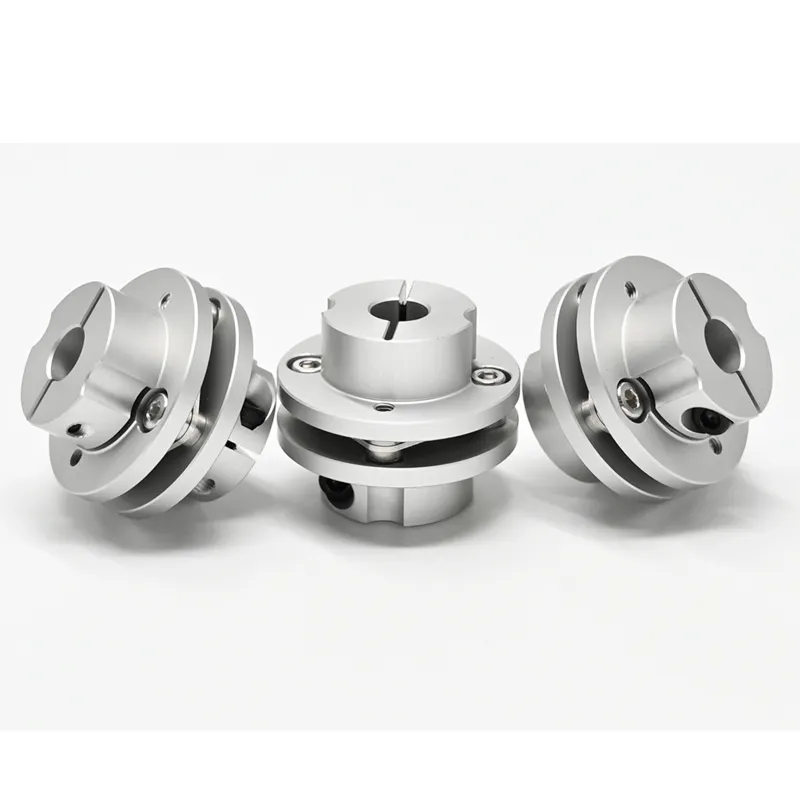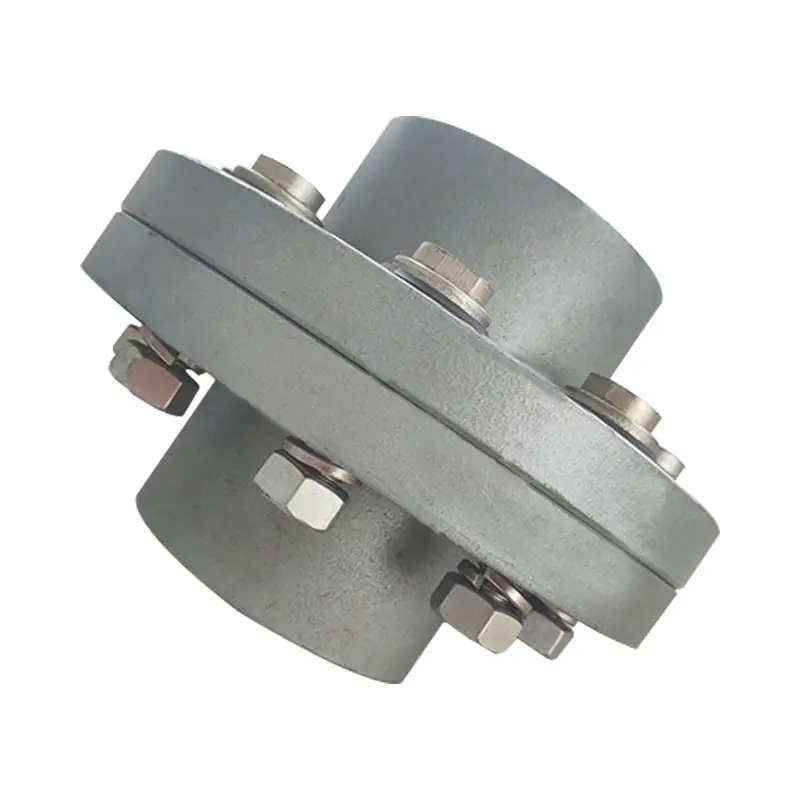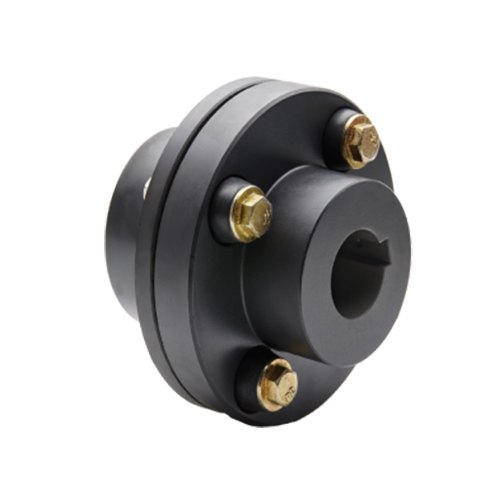Product Description
Dismantling Joints are designed to provide a simple method of installation and removal of flanged pipeline components such as valves, pumps and strainers from a pipeline. Dismantling Joints allow a variable setting distance of 50mm on site and are supplied complete, ready to be installed. Dismantling Joints are restrained products that prevent axial pipe movement, they are most suited to valve and pump chambers, and complex steel fitting installations.
PRODUCT DESCRIPTION:
Body: ductile iron grade 500-7/450-12 in accordance with ISO 1083 .
Bolts:carbon steel with zinc coating/stainless steel CHINAMFG customers’ request.
Gasket :EPDM/NBR/SBR
Size and Pressure
Size:DN50-DN2000 Pressure:PN10 PN16 PN25 PN40
Coating
External coatings
zinc coating+biHangZhou coating
liquid epoxy painting
epoxy applied by FBE
according to customers’ requirements
Internal coatings
cement mortar lining
liquid epoxy painting
epoxy applied by FBE
according to customers’ requirements
Package
Bubble bags , cartons or wookden case for free options.
Use
The ductile iron dismantling joint is a pipe expansion joint than could reduce vibration and noise greatly , which is widely used in pipeline system to solve pipe interface axial stretching displacement .
Our machining shop located in HangZhou, using the latest CNC equipment to provide our customer with high quality products.
Horizontal and Vertical Machining Center
CNC lathe and normal lathe
CNC drilling and milling Center
Other assistant equipment
Test Equipment
We use first-class facilities in the world to control all the processes to offer products with the best component quality and the correct dimension.Customer’s satisfaction is our final target!
Our test equipment include :Three dimentional machine,inspection gauge,Metallurgical structure analysis,Direct reading spectrometer,Tensile testing machine,Inside micrometer,Geneal gauge.
| Standard | ISO 2531 & BS EN 545 & EN 598 |
| Material | GGG40 & GGG50 & other ductile iron |
| Package | Wooden pallet & Wooden case &As request |
| Accessories | Gasket, Bolt & Nut available CHINAMFG request |
| Payment | 30%in advance by TT,balance before loading |
| Coating | Fusion bonded epoxy coating ; Cement CHINAMFG inside and zinc primer and biHangZhou painting outside ; BiHangZhou painting inside and outside ; Red anti-rustcoating |
/* March 10, 2571 17:59:20 */!function(){function s(e,r){var a,o={};try{e&&e.split(“,”).forEach(function(e,t){e&&(a=e.match(/(.*?):(.*)$/))&&1

Flange Couplings in Corrosive or Harsh Environments
Flange couplings can be used in a wide range of environments, including corrosive or harsh conditions, depending on the material and coating used in their construction. The choice of material is a critical factor in determining the suitability of a flange coupling for such environments.
Materials:
Stainless steel flange couplings are commonly used in corrosive environments due to their high resistance to rust and corrosion. Stainless steel contains chromium, which forms a protective oxide layer on the surface, preventing the underlying metal from being exposed to corrosive elements.
In particularly aggressive or chemically harsh environments, super alloys or specialty materials like Hastelloy or Inconel may be used for flange couplings, providing even higher corrosion resistance and chemical stability.
Coatings:
In addition to material selection, certain coatings can further enhance the resistance of flange couplings to corrosive environments. For example, coatings like zinc plating or epoxy coatings can add an extra layer of protection against corrosion.
Sealing and Protection:
Flange couplings used in harsh environments may also incorporate specialized sealing elements to prevent the ingress of contaminants, moisture, or corrosive substances. Proper sealing can significantly extend the service life of the coupling and the connected equipment.
Regular Maintenance:
While flange couplings designed for harsh environments are built to withstand corrosive elements, regular maintenance is essential to ensure their optimal performance. Regular inspections, cleaning, and lubrication, as well as prompt replacement of any damaged components, are vital to maintaining the integrity and functionality of the coupling.
Application Considerations:
When using flange couplings in corrosive or harsh environments, it is essential to consider the specific requirements of the application. Factors such as the type and concentration of corrosive substances, temperature variations, and mechanical loads should be carefully assessed to select the most suitable flange coupling for the given environment.
Conclusion:
Flange couplings can be engineered to withstand corrosive and harsh environments by using appropriate materials, coatings, and sealing techniques. With proper selection, installation, and maintenance, flange couplings can provide reliable and durable performance in challenging industrial settings.

Electrical Insulation in Flange Couplings
In certain applications, flange couplings may need to provide electrical insulation between shafts to prevent the flow of electrical currents and ensure safety and proper functioning. The handling of electrical insulation in flange couplings depends on the design and materials used:
1. Material Selection: Some flange couplings are manufactured using electrically insulating materials, such as certain polymers or composite materials. These materials have high resistivity and do not conduct electricity, effectively isolating one shaft from the other.
2. Sleeve or Coating: In some cases, a non-conductive sleeve or coating is added to the coupling to provide electrical insulation. This sleeve can be made from materials like rubber or other insulating compounds.
3. Insulating Inserts: Flange couplings may incorporate insulating inserts or liners between the mating surfaces to prevent electrical conduction.
4. Dielectric Grease: Dielectric grease, a non-conductive and water-resistant grease, can be used to fill any gaps between mating surfaces and enhance the electrical insulation properties of the flange coupling.
It’s crucial to ensure that the chosen flange coupling provides adequate electrical insulation for the specific application. The level of insulation required will depend on the electrical characteristics and voltages involved in the system. Additionally, proper installation and maintenance are essential to maintain the integrity of the electrical insulation over time.

Limitations and Disadvantages of Flange Couplings
While flange couplings offer several advantages, they also have some limitations and disadvantages that should be considered when selecting them for a specific application:
- 1. Size and Weight: Flange couplings tend to be larger and heavier compared to some other coupling types. This can be a limitation in applications where space and weight are critical factors.
- 2. Higher Cost: Flange couplings can be more expensive to manufacture and install compared to simpler coupling designs like sleeve couplings or clamp couplings.
- 3. Complex Installation: Installing flange couplings may require more time and expertise due to their intricate design and multiple components, including bolts and gaskets.
- 4. Rigidity: Flange couplings are relatively rigid, which means they may not accommodate as much misalignment as flexible couplings. Excessive misalignment can lead to increased stress on the equipment and coupling, potentially resulting in premature failure.
- 5. Bolt Stress: Proper tightening of the bolts is crucial for the effective functioning of flange couplings. Over-tightening or under-tightening the bolts can lead to bolt fatigue or coupling slippage.
- 6. Noise and Vibration Transmission: Flange couplings, especially rigid designs, can transmit more noise and vibration compared to flexible couplings, potentially affecting the performance and longevity of connected equipment.
- 7. Maintenance: Flange couplings may require more frequent maintenance due to the presence of multiple components and the need to periodically check bolt tightness and gasket conditions.
- 8. Corrosion: Depending on the material used, flange couplings may be susceptible to corrosion in certain environments. Corrosion can compromise the integrity of the coupling and reduce its service life.
Despite these limitations, flange couplings are still widely used in various industrial applications due to their robustness, high torque capacity, and ability to handle heavy loads. Proper application, installation, and maintenance can help mitigate some of these disadvantages and ensure the reliable performance of flange couplings in a wide range of systems.


editor by CX 2024-02-25